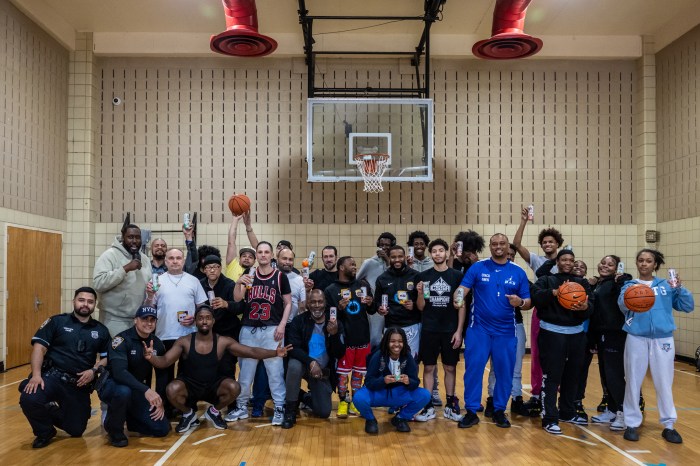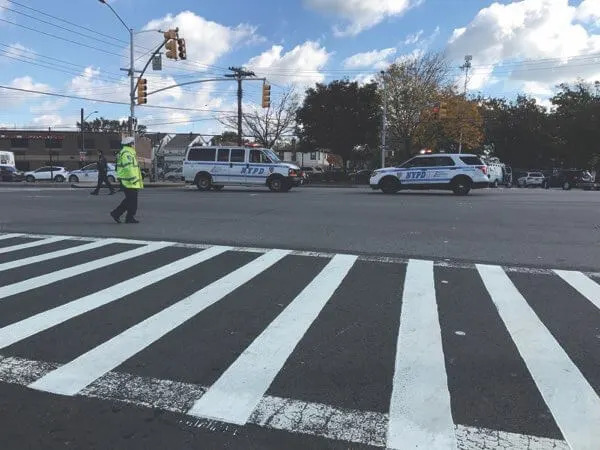It was the largest identity theft takedown in U.S. history.
Last week, 111 people — members of five organized forged credit card and identity theft rings based in Queens and having ties to Europe, Asia, Africa and the Middle East – were charged in 10 indictments with stealing the personal credit information of thousands of unwitting American and European consumers and costing these individuals, financial institutions and retail businesses more than $13 million in losses over a 16-month period.
Eighty six of the defendants are in custody and 25 are presently being sought.
In addition, nearly two dozen of the defendants are variously charged in six indictments with participating in burglaries and robberies throughout Queens. For example, four defendants are charged with conspiring to commit a bank robbery in Forest Hills. Five are charged with stealing more than $95,000 worth of cargo from John F. Kennedy Airport and seven are accused of stealing approximately $850,000 worth of computer equipment from the Citigroup Building in Long Island City.
“Many of the defendants charged are accused of going on nationwide shopping sprees, staying at five-star hotels, renting luxury automobiles and private jets, and purchasing tens of thousands of dollars worth of high-end electronics and expensive handbags and jewelry with forged credit cards that contained the account information of unsuspecting consumers,” said District Attorney Richard A. Brown. “Even after the culprits are caught and prosecuted, their victims are still faced with the difficult task of having to repair their credit ratings and financial reputations. In some cases, that process can take years.”
Brown said that more than 90 of the defendants have been charged in five indictments charging 784 pattern acts with, among other crimes, Enterprise Corruption under New York
State’s Organized Crime Control Act. They are accused of being members and associates of organized criminal enterprises that operated in Queens and elsewhere and that, between May 2010 and September 2011, systematically schemed to defraud thousands of unsuspecting consumers and financial institutions – such as American Express, Visa, MasterCard and Discover Card.
According to the indictments, the defendants fraudulently obtained credit card account numbers through various means which were then used to manufacture forged credit and identification cards.
Once the counterfeit cards were created, according to the indictments, they were ultimately given to teams of “shoppers” who were sent out on shopping expeditions in New York, Florida, Massachusetts, Los Angeles and other areas of the United States to purchase high-end electronics and other merchandise – such as designer handbags, game consoles and jewelry – which either had been requested or could easily be fenced and re-sold, typically over the Internet.
During the shopping sprees, some of the shoppers used forged credit cards to stay at such five-star hotels as the Fontainbleau and The Royal Palm in Miami Beach and the Las Casitas Village, the high-end private villas of the El Conquistor in Puerto Rico. They are also alleged to have used forged credit cards to rent such luxurious automobiles as Lamborghinis and Porsches and, in one instance, a private jet to take them from New York to Florida.
The District Attorney said that the investigation – dubbed “Operation Swiper” – leading to the indictments and the arrests began in October 2009 when officers assigned to the Police Department’s Identity Theft Squad commenced a joint investigation with the District Attorney’s Economic Crimes Bureau into an identity theft ring operating in South Ozone Park.
The investigation involved physical surveillance, intelligence gathering and court-authorized electronic eavesdropping on dozens of different telephones in which thousands of conversations were intercepted – many of which required translation from Russian, Mandarin and Arabic to English.
The indictments charge that Imran Khan, Ali Khweiss, Anthony Martin, Sanjay (a.k.a. Rocky) Deowsarran and Amar Singh were “bosses” of criminal enterprises and received the necessary raw material – lists of credit card account numbers and various blank credit cards. The materials were alleged to have come from overseas – unknown individuals in such places as Russia, Libya, Lebanon and China – or from statewide suppliers, such as “skimmers” (individuals who worked in a restaurant or bar, retail store or financial institution and used a skimming device to swipe a consumer’s credit card information) or “Internet suppliers” (who obtained credit card accounts through illegal web sites).
The boss then allegedly sent the stolen account numbers to a “manufacturer” who re-encoded the information onto the magnetic strips of blank credit cards using a “reverse” skimming device. The manufacturer was also allegedly responsible for putting the written four security numbers on the front of a credit card, as well as the seven security numbers on the back, as well as writing and embossing the account number on the credit card.
Once the forged credit cards were completed, the items were distributed to the criminal enterprise’s “shopping crews,” which consisted of “crew leaders” and “shoppers.” Crew leaders allegedly supplied the fraudulent items to the shoppers and oversaw their planned shopping expeditions throughout New York and the U.S.
Among the local malls targeted by the shoppers were the Queens Center Mall, the Westchester Mall, the Americana Mall, the Roosevelt Field Mall, the Walt Whitman Mall and the Smithtown Mall.
According to the charges, aiding the shoppers were collusive store owners or employees who worked within a particular retail store where the shoppers were making their purchases or in a bank where they had access to cardholder information and could check the information for high value targets and/or steal credit card information from the available files.
Sometimes, it is alleged, a fraud ring would employ an “impersonator,” an individual who contacted financial institutions or retail stores and impersonated the true cardholder and made inquires in order to check the viability of the credit. Also employed were “bust out crews,” individuals who used the skimmed information of another member of the criminal enterprise to make thousands of dollars in purchases.
Once a shopper purchased high-end merchandise with forged credit cards, the merchandise was turned over to the crew leader who, in turn, gave the merchandise to the boss of the operation. The boss would then allegedly contact a “fence” – such as Fnu Gustawian, Kah Sheng Poh, Allen Lam or Benny Ahoo Ahdoot – and sell the merchandise to the fence at a discounted price. The fence, in turn, would then allegedly offer the merchandise for re-sale to the public.
Among the items allegedly recovered as a result of the court-authorized search warrants were approximately $650,000 in cash, seven handguns (two defaced), a box truck full of electronics, computers, shoes and watches, skimmers, card readers, embossers and various amounts of raw material, such as blank credit cards and fake identifications.
In addition to the counterfeit credit card and identity theft charges, some of the defendants are accused of participating in burglaries and robberies.































